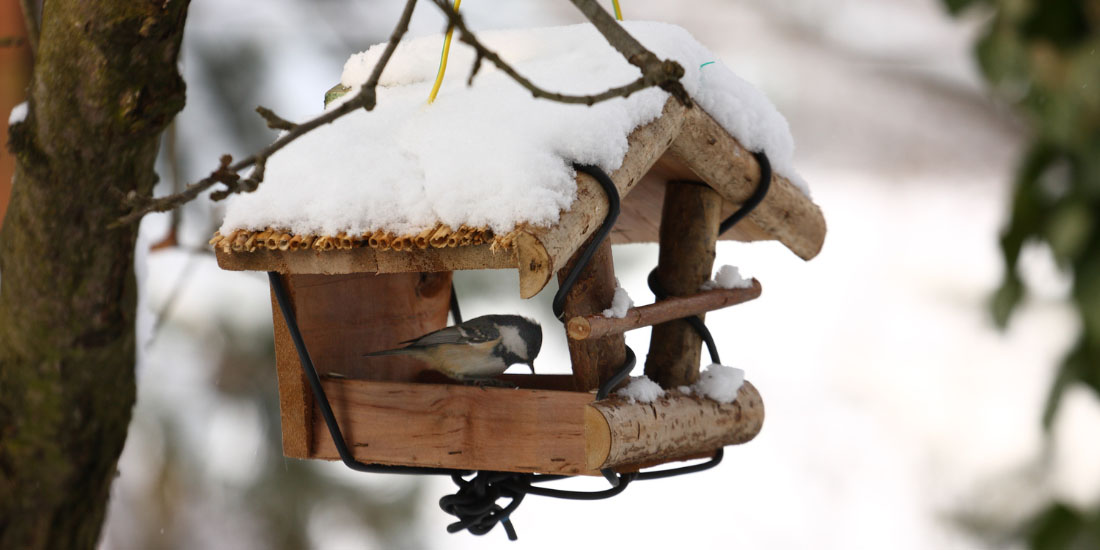Tips for feeding birds in winter

Wild birds in the UK need help during the winter; their natural food sources are low, and less daylight means they have less time to forage. On top of this, it is cold outside, and they need all the help they can get to keep warm. So, what do you feed garden birds in winter? By providing them with quality bird food, we can offer them much-needed fats and nutrients to help them overcome the challenges of winter.
What foods benefit wild birds in winter?
Wild birds need energising, high-fat bird food to bulk them up and keep them active during the cold winter weather. Feeding birds in winter helps them get through cold, frosty nights and gives them the energy to carry out all their daily tasks. Alternatively, you could use a combination of straights, like peanuts, niger seeds, black sunflower seeds and sunflower hearts, to give them the energising fats and nutrients they require.
So, whether you offer them a bird food mix or a combination of straights, your local wild birds will be getting a helping hand during winter in the UK.
When should you refill your feeders in winter?
Our best advice is to keep an eye out for your feeders running low on food, and when food gets low, you can refill them. Keeping food levels topped up is especially important for hanging feeders with multiple ports at different heights on the tube. Hanging feeders like the Flo Festival, Flo Lifetime and Ring-Pull Click are all great options for feeding wild birds.
If you prefer using table feeders and feeding stations for feeding wild birds, you should check your bird food levels more often to determine how much bird food is being eaten or left behind. Even if your feeders do not need refilling as often, we still recommend you remove uneaten food after one week to avoid any bacteria build-up.
Don’t overfill your feeders during winter
Loading up your feeders and feeding tables this time of year can be tempting. However, bird food can quickly go mouldy during the cold, damp winter months, making it unsafe for them to eat.
Good hygiene is essential during all seasons, but in winter, you must check food more often because it can spoil fast in cold, damp conditions.
You should also adjust the amount of food you place outside based on how many birds visit your garden. Offering a smaller quantity of food means there will be less wastage, and you can avoid overfeeding and food spoiling and going mouldy - this ensures your garden birds are only eating fresh and healthy food.
Keep bird feeders clean and healthy
Remember when feeding birds in winter that we must maintain good hygiene practices to ensure their feeders are clean and they are getting healthy food. Keeping your bird feeders clean is very important. An unclean feeder will cause many problems for wild birds and their food, but thankfully, cleaning their feeders is easy - and our video below will help you out:
Why feeding birds in winter helps
Wild birds must work hard all year round. But, in winter, they are presented with additional challenges that make their daily lives more difficult. On top of the reduced food availability, they have to deal with snow, harsh weather, high winds and heavy rain. And this is where we can help - wild birds will benefit from the additional food we provide!
By offering them high-quality bird food, we are helping them get food through winter so they can make it out the other side to spring. On top of this, it also means we can enjoy having them feeding and frolicking around in our garden, which is always a joy to watch.
We have included some links below to helpful advice to make bird feeding more rewarding for you and your local birds: